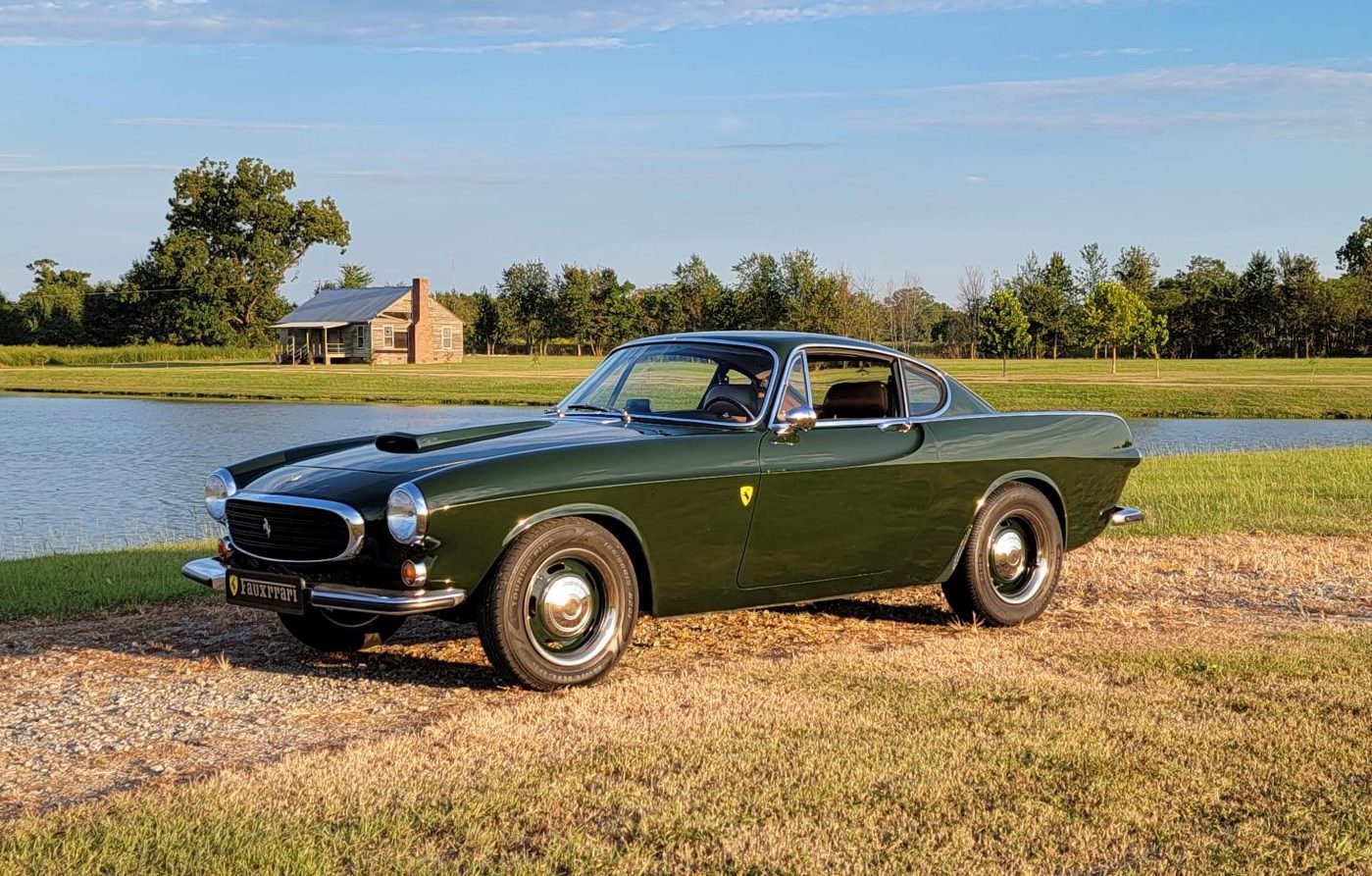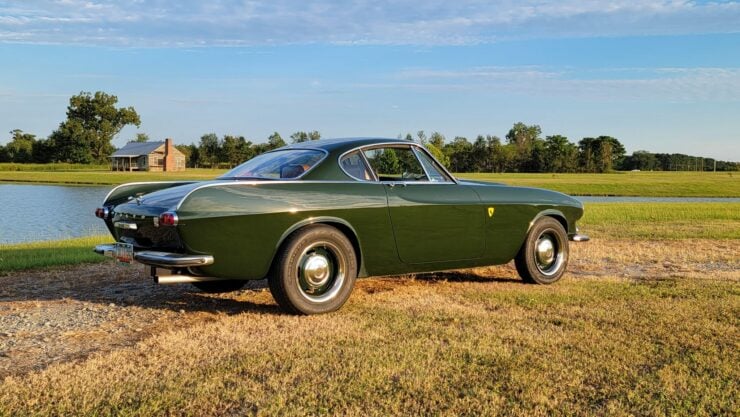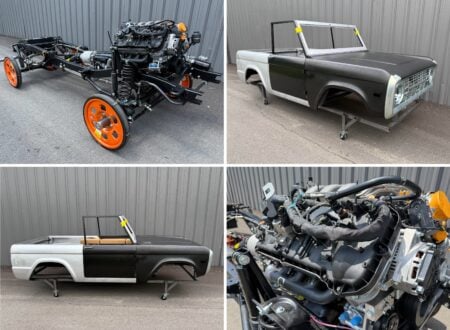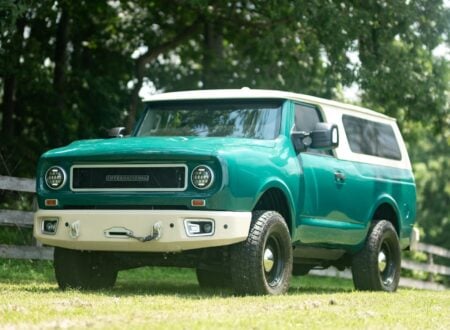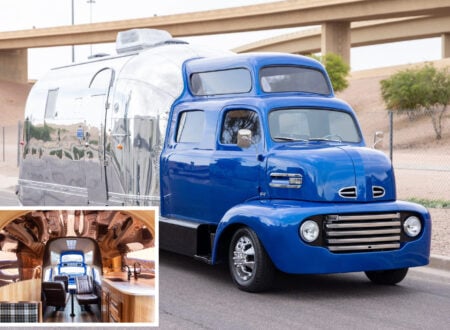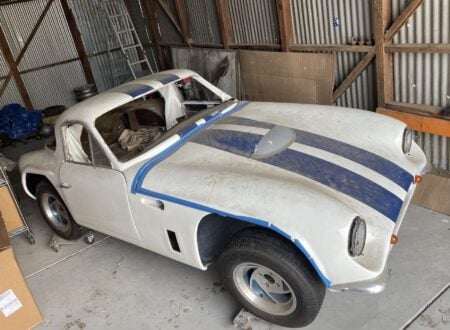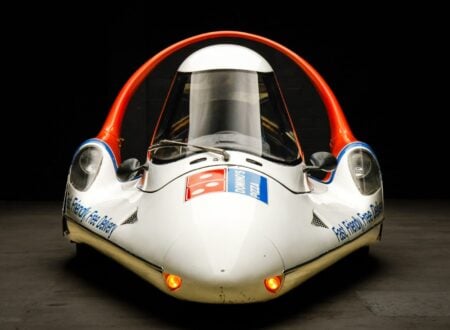This is a 1969 Volvo 1800S that has had its original 2.0 liter inline four-cylinder engine removed and replaced with a 5.7 liter Chevrolet small block V8 sending power back through a 5-speed manual transmission.
The Volvo P1800 has long been hailed as one of the most beautiful car designs of its time, the key drawback for some was the lack of power from the four cylinder engine. The person behind this car has solved that issue, and added a slew of suspension and braking upgrades to match.
Fast Facts – A 350 V8 Powered Volvo 1800S
- The Volvo P1800 was designed by a Swede, though this fact was kept secret for many years with the Scandinavian automaker preferring people to believe it had been designed by the Italians.
- The P1800 was released in 1961 and sold in various model iterations, including a shooting brake version, until 1973. The earlier cars were powered by a 1.8 liter B18 inline four, with later cars getting the slightly more powerful 2.0 liter B20 engine.
- It’s possible the P1800 would have remained an obscure Swedish sports car if it wasn’t for the fact that one was driven by Roger Moore in the popular 1960s British mystery/spy/thriller TV series “The Saint.”
- The car you see here now has a 5.7 liter small block V8 fitted, it’s paired with a 5-speed transmission, upgraded suspension, and disc brakes front and back to better cope with the significant power increase.
The Volvo P1800
The project to develop the Volvo P1800 began in the late 1950s, the Swedish automaker wanted their own sports car to sell in the lucrative North American and European markets and their earlier attempt, the P1900, had failed miserably.
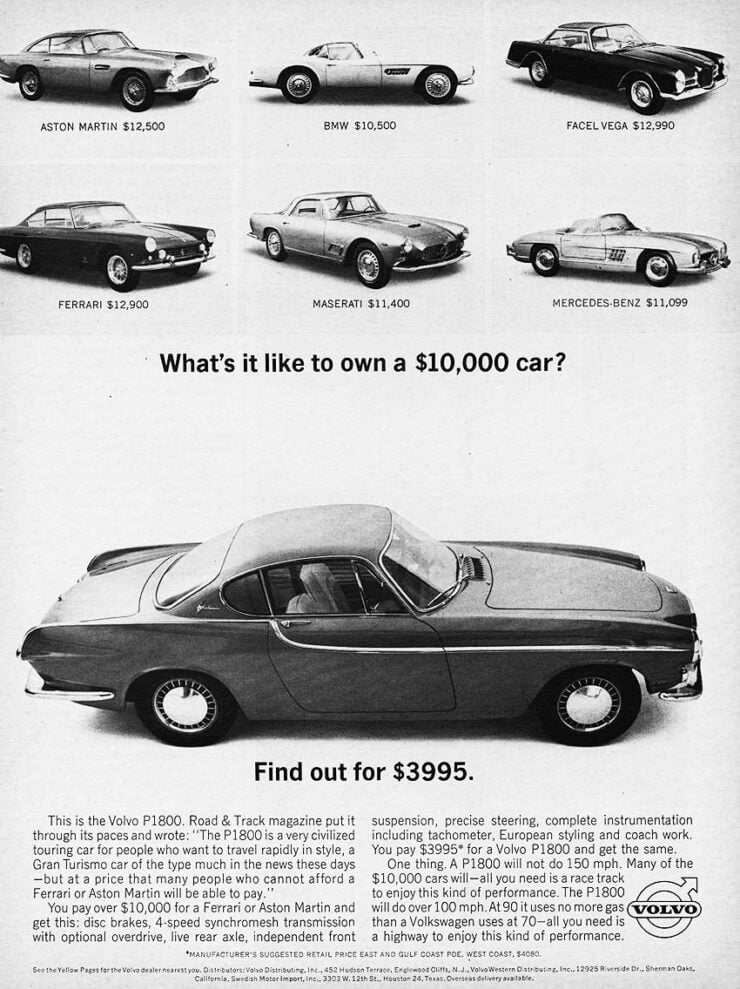

The P1800 project was helmed by Helmer Petterson, the father of the popular Volvo PV444/544, interestingly the car would be designed in secret by his own son Pelle Petterson who was working in Italy with stylist Pietro Frua at the time.
In order to reduce cost and complexity the P1800 was based on the same underpinnings as the preexisting Volvo Amazon 122. This was also arguably one of the toughest production automobiles of its day, so it provided a solid foundation for the new sports car.
The first prototypes were built by Carrozzeria Frua in Italy in 1957. Early negotiations with Karmann could have seen the P1800 in production as soon as 1958 however Volkswagen forbade the contract and Karmann obeyed.
A number of other potential body manufacturers were considered until Volvo settled on Jensen in West Bromwich, England. The steel bodies would be manufactured by Pressed Steel in Scotland and sent to Jensen in England by train for finishing and fit out.
The early examples of the P1800 were fitted with the Volvo B18 1.8 liter inline-four producing 100 bhp and deliveries began in 1961. By 1963 Volvo had decided to bring production in-house, a revised car was released and named the 1800S with that “S” standing for “Sweden.” Power climbed initially to 108 bhp and then to 115 bhp, then in 1969 the 2.0 liter B20 engine replaced the B18 and power climbed to 118 bhp.
In 1970 the 1800E was released with a slew of changes for the new decade, these included a fuel injected engine and a new camshaft that when combined boosted power output to 130 bhp.
Finally in 1972 the final major version of the model would be released – the Volvo 1800ES with a beautiful shooting brake (coupe station wagon) bodywork. This model would then remain in production until a year later in 1973.
The 350 V8 Powered Volvo 1800S Shown Here
The car you see here was built to address what was probably the main gripe that many had about the P1800, and that was its relative lack of performance. The car looked fast, but without mods it rarely was fast.
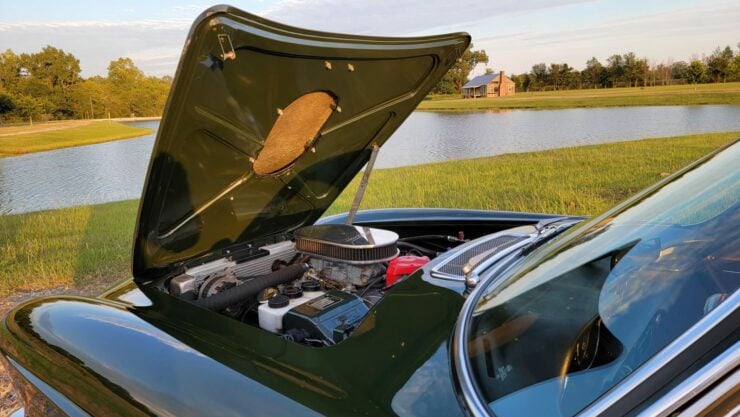

The project began with significant changes in the engine bay to ensure the larger Chevrolet V8 would fit, along with its exhaust headers, Holley carburetor, and other ancillaries. The engine was mated to a 5-speed manual transmission which sends power back to a live axle rear end.
The front suspension was replaced with coil overs and in the rear the car now uses a combination of coil springs and adjustable-height airbags. The rear axle also has a Panhard rod and dual anti-tramping bars fitted for good axle location.
To better handle the power four-wheel disc brakes have been fitted, and the car now has air conditioning, a wood-rimmed steering wheel, a trunk-mounted fuel cell, three-point front seat belts, power steering, and a vintage-style aftermarket radio.
The car has been fitted with “Prancing Moose” badges, a favorite in the custom Volvo community for obvious reasons, but the fake Ferrari badge on the grille could probably do with being removed – this car doesn’t need to pretend to be anything other that what it already is.
If you’d like to read more about this usual Volvo or place a bid you’ll find the listing here on Bring a Trailer. It’s being sold out of Florence, South Carolina.
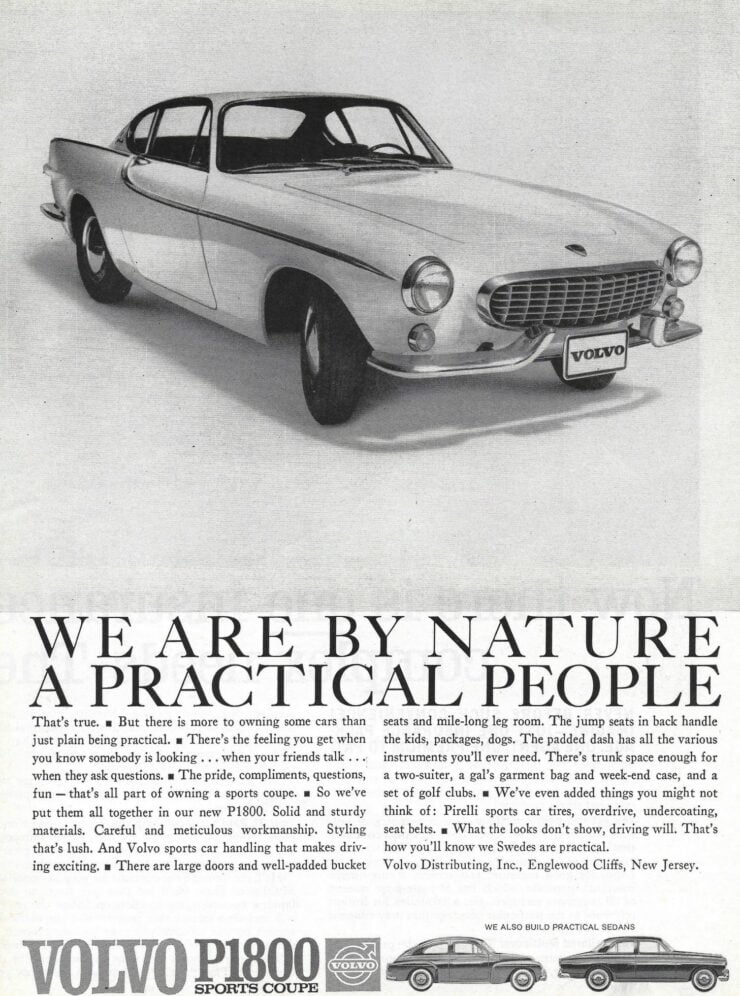
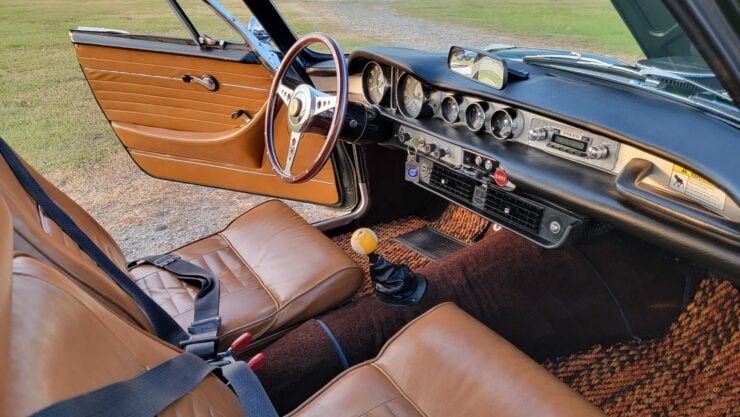
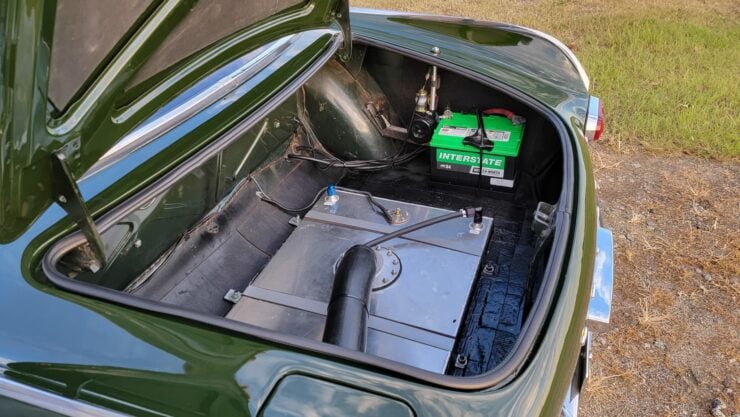
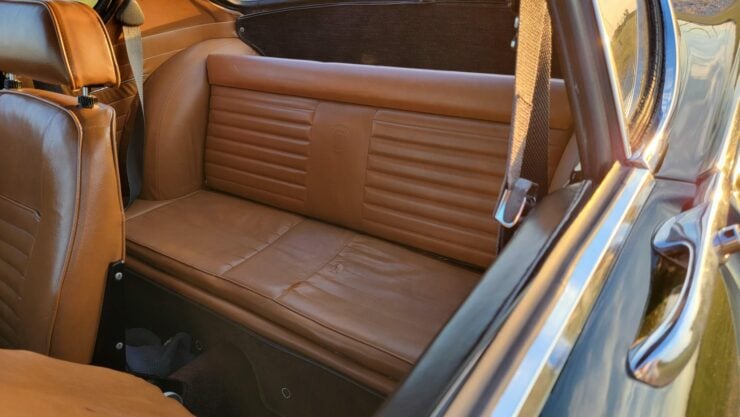

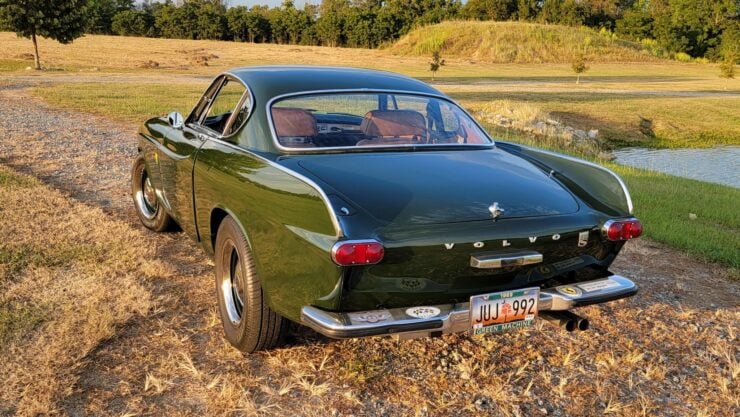
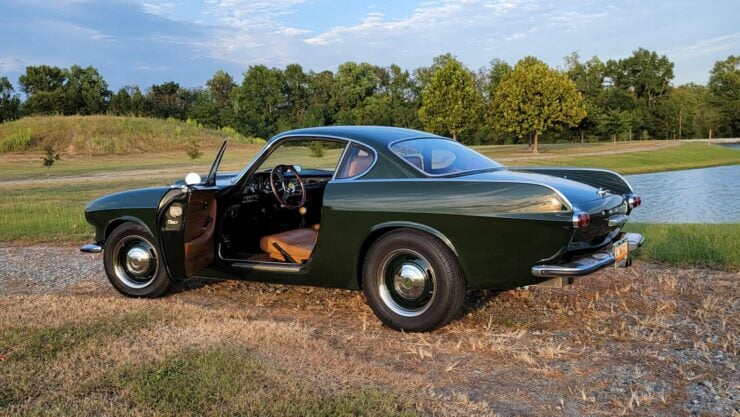
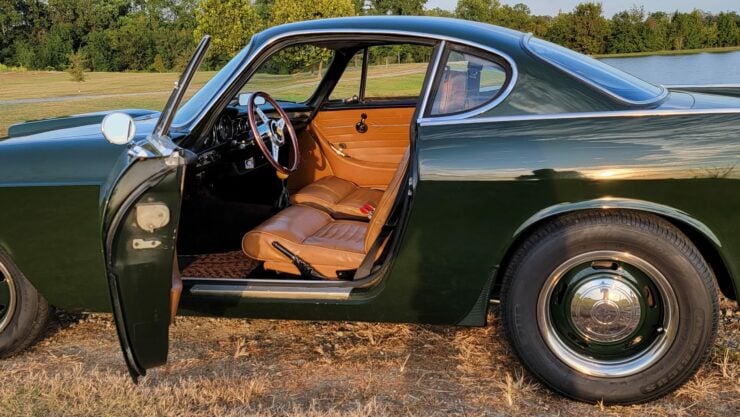
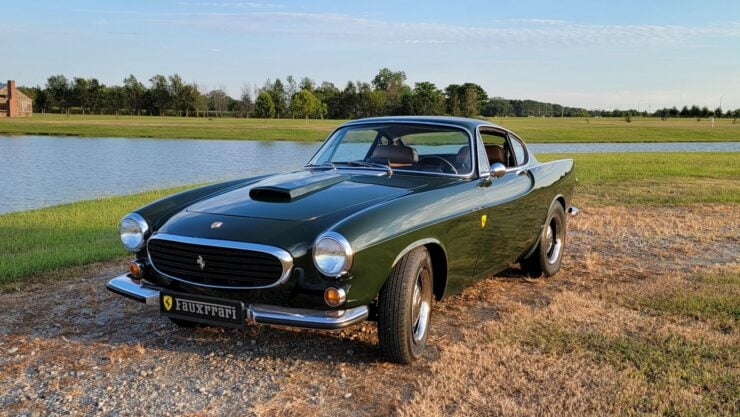
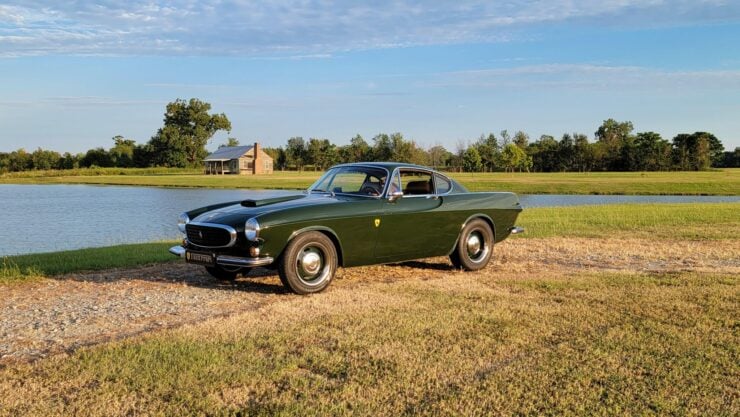
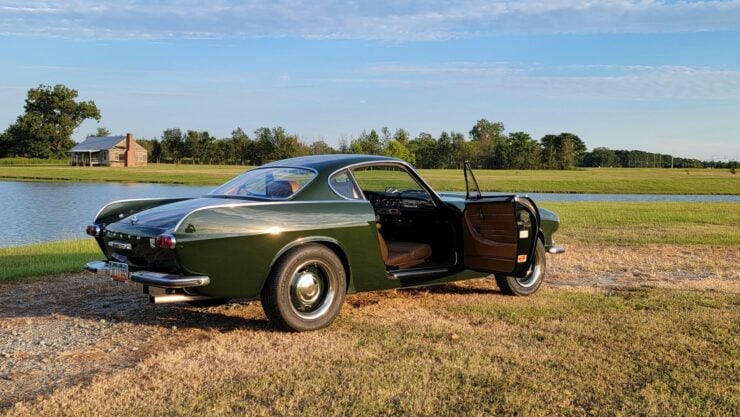
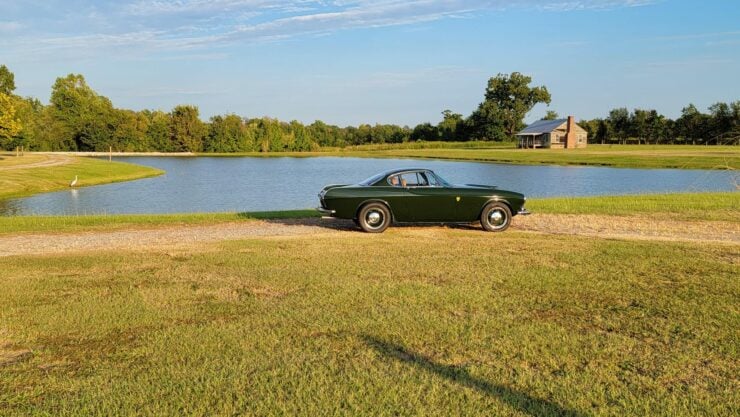
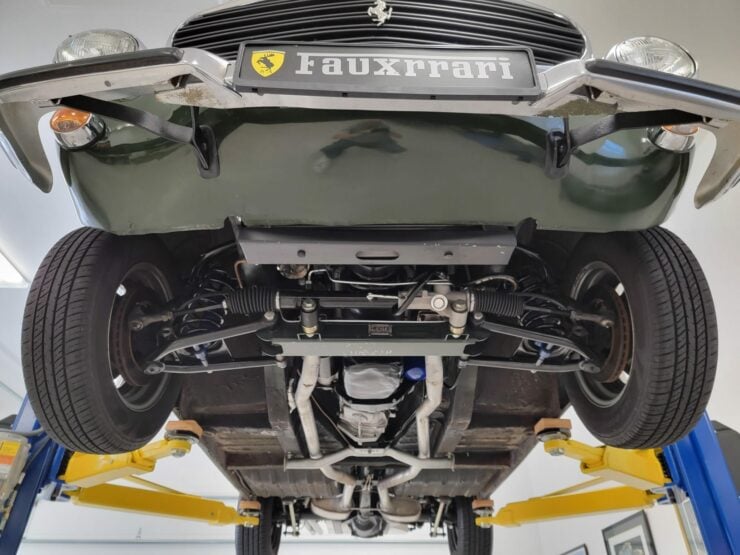
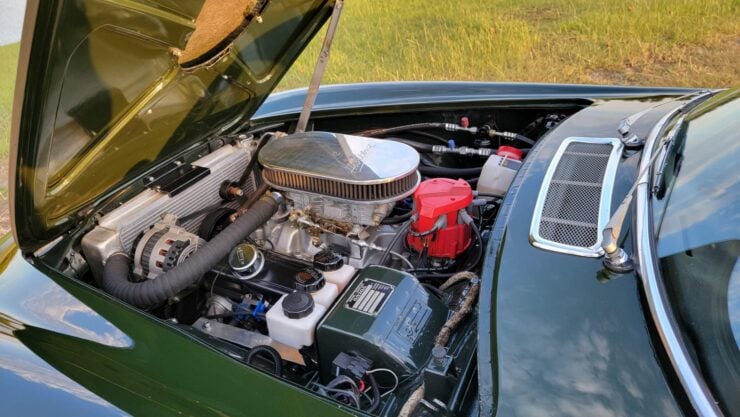
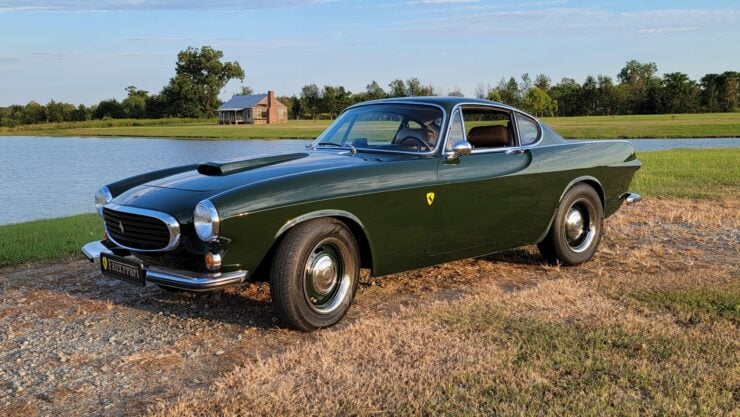
Images courtesy of Bring a Trailer

